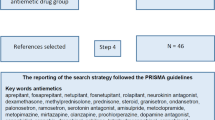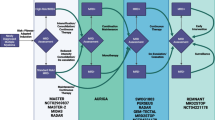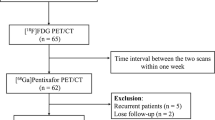Abstract
Cetuximab is approved for treatment of squamous cell carcinoma of the head and neck (SCCHN). Cetuximab is generally well tolerated, but does carry a black box warning for infusion reactions (IRs). Incidence of IR in clinical trials was 15–20% for all grades and 3–5% for grades III–IV. Retrospective studies reported a higher incidence of all grade IRs and grades III–IV IR in areas of the Southeastern United States. Information regarding rechallenge doses after an IR has not been well described. At our institution, we frequently rechallenge on the same day after an initial IR. The primary objective was to determine the incidence, timing, IR grade, and completion of a rechallenge dose in patients who experienced an initial IR. Secondary objectives included: (1) determining the incidence and grade of IR in patients who received a first dose of cetuximab and (2) identifying specific risk factors for cetuximab IR with the first dose. A single-center retrospective chart review was conducted in SCCHN patients treated with cetuximab between June 2008 and September 2015 at the University of Kansas Hospital Cancer Center and inpatient setting. The majority of patients (87.9%) were able to be quickly and successfully rechallenged after an initial IR. Minimal patients (27.6%) experienced a rechallenge IR, resulting in only 1 patient discontinuation. Rechallenge doses were most frequently (37.9%) administered between 30 and 59 min after initial dose discontinuation. This was a single-center retrospective study based on data collected from electronic medical records. Other limitations include interpretation of infusion reactions on a subjective basis by providers. These findings demonstrate the practice of same-day rechallenges in initial IR patients is feasible and safe.

Similar content being viewed by others
References
Erbitux (cetuximab) [package insert]. ImClone Systems Incorporated, New York and Bristol-Myers Squibb Company, Princeton, NJ; 2013.
Cetuximab: Lexicomp Online®, Lexi-Drugs®, Hudson, Ohio: Lexi-Comp, Inc.; August 19th, 2015.
O’Neil BH, Allen R, Spigel DR, et al. High incidence of cetuximab-related infusion reactions in Tennessee and North Carolina and the association with atopic history. J Clin Oncol. 2007;25:3644–8.
George TJ Jr, LaPlant KD, Walden EO, et al. Managing cetuximab hypersensitivity-infusion reactions: incidence, risk factors, prevention and retreatment. J Support Oncol. 2010;8:72–7.
Keating K, Walko C, Stephenson B, et al. Incidence of cetuximab-related infusion reactions in oncology patients treated at the University of North Carolina Cancer Hospital. J Oncol Pharm Pract. 2014;20(6):409–16.
Chung CH, Mirakhur B, Chan E, Le QT, Berlin J, Morse M, et al. Cetuximab-induced anaphylaxis and IgE specific for galactose-alpha-1, 3- galactose. N Engl J Med. 2008;358:1109–17.
Commins S, James H, Kelly L, et al. The relevance of tick bites to the production of IgE antibodies to the mammalian oligosaccharide galactose-a-1, 3-galactose. J Allergy Clin Immunol. 2011;127(5):1286–93.
Siena S, Glynne-Jones R, Adenis A, et al. Reduced incidence of infusion-related reactions in metastatic colorectal cancer during treatment with cetuximab plus irinotecan with combined corticosteroid and antihistamine premedication. Cancer. 2010;116:1827–37.
Touma W, Koro S, Ley J, et al. Risk factors for and pre-medications to prevent cetuximab-induced infusion reactions in patients with squamous cell carcinoma of the head and neck. Oral Oncol. 2014;50:895–900.
Common Terminology Criteria for Adverse Events (CTCAE) version 3.0 and 4.0. August 09, 2006; May 28, 2009. U.S. DHHS. NIH. NCI.
Author information
Authors and Affiliations
Corresponding author
Ethics declarations
Conflict of interest
The authors declare that they have no conflict of interest.
Ethical approval
All procedures performed in studies involving human participants were in accordance with the ethical standards of the institutional and/or national research committee and with the 1964 Helsinki Declaration and its later amendments or comparable ethical standards.
Rights and permissions
About this article
Cite this article
Burke, E., Rockey, M., Grauer, D. et al. Assessment of cetuximab-induced infusion reactions and administration rechallenge at an academic medical center. Med Oncol 34, 51 (2017). https://doi.org/10.1007/s12032-017-0902-9
Received:
Accepted:
Published:
DOI: https://doi.org/10.1007/s12032-017-0902-9




